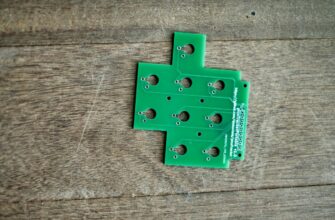## Introduction
With Kenya emerging as Africa’s crypto innovation hub, buying Bitcoin has become accessible to anyone with a smartphone. This comprehensive guide simplifies how to buy Bitcoin in Kenya securely—even for beginners. Learn trusted platforms, payment methods, and safety tips tailored for Kenyan users.
## Why Kenyans Are Embracing Bitcoin
Kenya leads Africa in peer-to-peer Bitcoin trading volume due to:
* **Financial inclusion**: Access digital assets without traditional banks
* **Remittance efficiency**: Lower fees for cross-border transfers
* **Inflation hedge**: Protection against currency devaluation
* **Tech-savvy population**: High mobile money adoption (M-Pesa)
* **Entrepreneurial opportunities**: Growing crypto startup ecosystem
## Step-by-Step: How to Buy Bitcoin in Kenya
Follow these 5 steps to purchase Bitcoin safely:
1. **Choose a Crypto Exchange**
Select platforms like Binance, Paxful, or LocalBitcoins that support M-Pesa payments
2. **Create & Verify Account**
Provide ID for KYC compliance (National ID/Passport)
3. **Fund Your Account**
Deposit KES via:
– M-Pesa (instant)
– Bank transfer
– Airtel Money
4. **Place Your Order**
Set amount in KES or Bitcoin quantity. Market orders execute instantly; limit orders set target prices.
5. **Secure Your Bitcoin**
Transfer coins to a private wallet (e.g., Trust Wallet, Ledger) after purchase
## Top 5 Bitcoin Platforms in Kenya
| Platform | Fees | Payment Methods | Key Feature |
|—————-|—————|———————-|—————————|
| **Binance** | 0.1% trading | M-Pesa, Bank Transfer| Largest liquidity |
| **Paxful** | Variable | M-Pesa, Cash Deposit | 300+ payment options |
| **LocalBitcoins** | 1% fee | M-Pesa, Cash | In-person trades |
| **Coinbase** | 1.49%-3.99% | Card/Bank transfer | User-friendly interface |
| **Yellow Card** | 2% spread | M-Pesa, Airtel Money | Instant settlements |
## Storing Bitcoin Securely
Never leave coins on exchanges long-term. Use:
* **Hardware wallets** (Ledger/Trezor): Offline storage
* **Mobile wallets** (Trust Wallet): Encrypted smartphone access
* **Paper wallets**: Physical QR code printouts
Enable two-factor authentication (2FA) and backup recovery phrases offline.
## Managing Risks in Kenya’s Crypto Market
* **Regulatory uncertainty**: Only use licensed platforms
* **Scams**: Verify seller ratings on P2P exchanges
* **Volatility**: Invest only what you can afford to lose
* **Tax obligations**: Report gains to KRA (Capital Gains Tax applies)
## Frequently Asked Questions
**Q: Is Bitcoin legal in Kenya?**
A: Yes, though unregulated. The Central Bank cautions users but doesn’t ban ownership.
**Q: What’s the minimum Bitcoin I can buy?**
A: Most platforms allow purchases from 500 KES (~$3.50) via M-Pesa.
**Q: How long do Bitcoin transfers take?**
A: Exchange deposits: Instant with M-Pesa. Blockchain confirmations: 10-60 minutes.
**Q: Can I convert Bitcoin back to Kenyan shillings?**
A: Yes. Sell on the same platforms and withdraw to M-Pesa (typically <24 hours).
**Q: Are Bitcoin profits taxable?**
A: Yes. KRA treats crypto as capital assets—declare gains in annual filings.
**Q: What if I lose access to my wallet?**
A: Recovery is impossible without your 12-24 word backup phrase. Store it physically.
## Final Tips
Start small using M-Pesa on Binance or Paxful. Diversify investments, use cold storage, and stay updated on Kenyan crypto regulations through the Blockchain Association of Kenya. With this guide, you're equipped to safely join Kenya's Bitcoin revolution.








